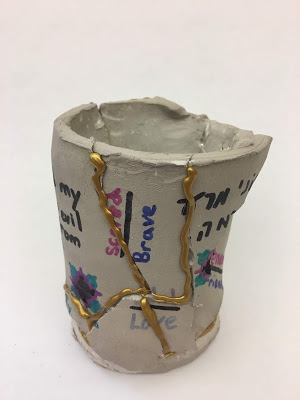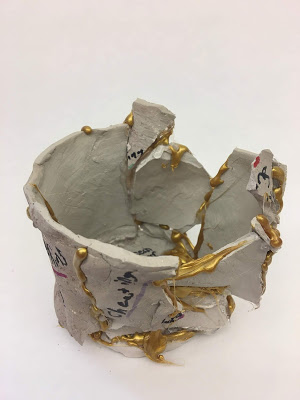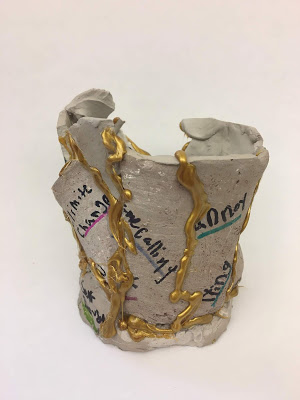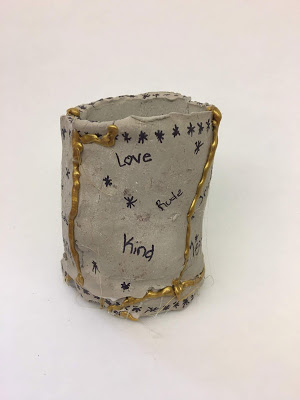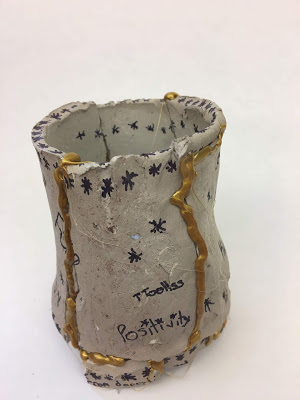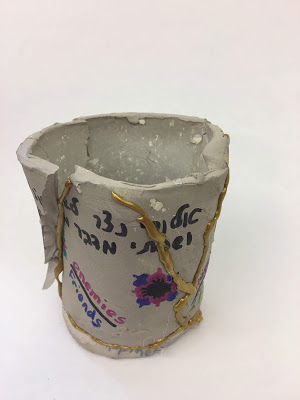By Erica Smiley, K-8 Art Teacher
My God, guard my speech from evil and my lips from telling lies.
(Elohai Netzor prayer)
Before those who say bad things about me, I will not respond; I will be humble.
Middle schoolers, in response to and as a reflection of the Elohai Netzor prayer, created these unique pottery pieces.
We discussed the meaning of the prayer, how each of us related to it, and what experiences it brought up for us. We spoke about the power of words; how both negative and positive words can have a significant impact on those around us.
We talked about the challenge of “guarding our tongue” and not getting caught up in gossip and talking behind someone’s back. In response to this discussion, students built vessels using slab construction techniques.
Next, they wrote words on the vessels to express the ways, positive and negative, in which the spoken or written word can affect themselves and others. They then dropped the vessels to show the literal and metaphorical breakage that occurs when words are used for harm.
Finally, they used gold glue to repair their vessels. This was inspired by Japanese kintsugi pottery, wherein artists use gold enamel to repair broken pottery.
The value and beauty of the object transcends the object itself, there is also value and beauty in the history of the object. This also demonstrated that even when harmful words are spoken, it is our duty to try to repair the relationships that might have been hurt or broken because of them. The repaired relationship wouldn’t look the same, but would have elements of both old and new.
This also demonstrated that even when harmful words are spoken, it is our duty to try to repair the relationships that might have been hurt or broken because of them. The repaired relationship wouldn’t look the same, but would have elements of both old and new.
We prompted the students to think deeply and to make personal connections about the following question as they repaired their vessels:
- What does the “gold” that we are using for repair represent in real life?
- How, and how much can we “fix” ourselves and others when our words do damage?
- To what extend can your vessel, and your spirit, ever be the same when there is breakage and repair?
My God, guard my speech from evil and my lips from telling lies.
Before those who say bad things about me, I will not respond; I will be humble.
Open my heart to Your Torah, that I may do good in the world through mitzvot. As for all who think bad of me—help to change their minds and their ways. Act for Your own sake, for the sake of Your Power, for the sake of Your Holiness, for the sake of Your Torah, so that we, Your loved ones may be helped. Save us with Your power, and answer me.
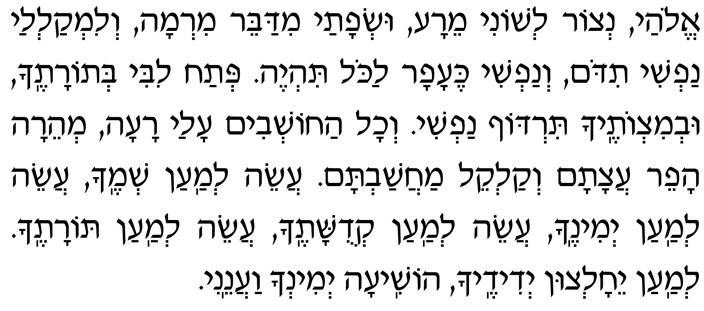
Elohai, n’tzor l’shoni meira us’fatai midabeir mirmah, v’limkal’lai nafshi
tidom, v’nafshi ke-afar lakol tih’yeh. P’tach libi b’Toratecha, uv’mitzvotecha
tirdof nafshi. V’chol hachoshvim alai raah, m’heirah hafeir atzatam v’kalkeil machashavtam. Aseih l’maan sh’mecha, aseih l’maan y’minecha, aseih l’maan k’dushatecha, aseih l’maan Toratecha. L’maan yeichaltzun y’didecha, hoshiah y’mincha vaaneini.
Read more about the arts at Rashi here and check out Ms. Smiley’s blog!


